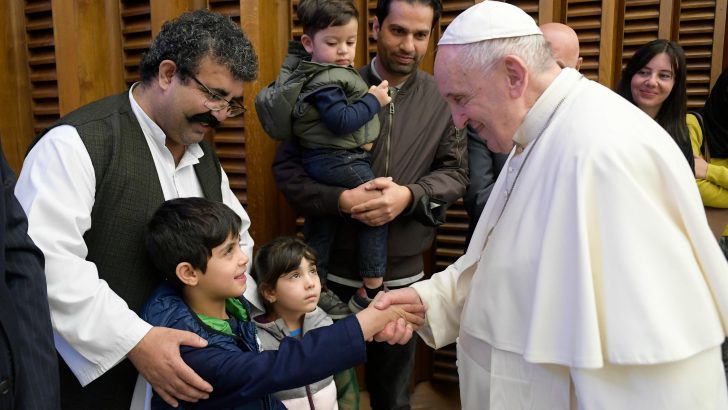Christian freedom means respecting other cultures and traditions rather than finding ways to impose “one’s own model of life as though it were the most evolved and the most appealing,” Pope Francis has said.
“How many errors have been made in the history of evangelization by seeking to impose a single cultural model,” the Pope said during his weekly general audience this week in the Paul VI audience hall.
“At times, even violence was not spared to make a single point of view prevail. In this way, the Church has been deprived of the richness of many local expressions that the cultural traditions of entire peoples bring with them. But this is the exact opposite of Christian freedom,” he said.
The Pope continued his series of talks on St Paul’s letter to the Galatians by reflecting on the freedom from slavery to sin and death that comes from Christ’s death and resurrection.
St Paul’s assertion is that freedom, given to humanity through grace and love, is “the supreme and new law of Christian life”, which “opens us up to welcoming every people and culture, and at the same time opens every people and culture to a greater freedom”, Pope Francis said.
For the apostle, the Pope said, welcoming faith “involves renouncing not the heart of cultures and traditions, but only that which may hinder the newness and purity of the Gospel”.
The “freedom obtained through the death and resurrection of the Lord does not enter into conflict with cultures or with the traditions we have received, but rather introduces into them a new freedom, a liberating novelty, that of the Gospel,” he said.
Through baptism, he continued, Christians obtain the freedom that “enables us to acquire the full dignity of children of God” opening them to the “universalism of faith” while remaining “firmly anchored in our cultural roots”.
Catholic News Service


 Chai Brady
Chai Brady Pope Francis greets a child as he meets families who fled from Afghanistan, during his general audience in the Paul VI hall at the Vatican Oct. 13, 2021. (CNS photo/Vatican Media)
Pope Francis greets a child as he meets families who fled from Afghanistan, during his general audience in the Paul VI hall at the Vatican Oct. 13, 2021. (CNS photo/Vatican Media) 